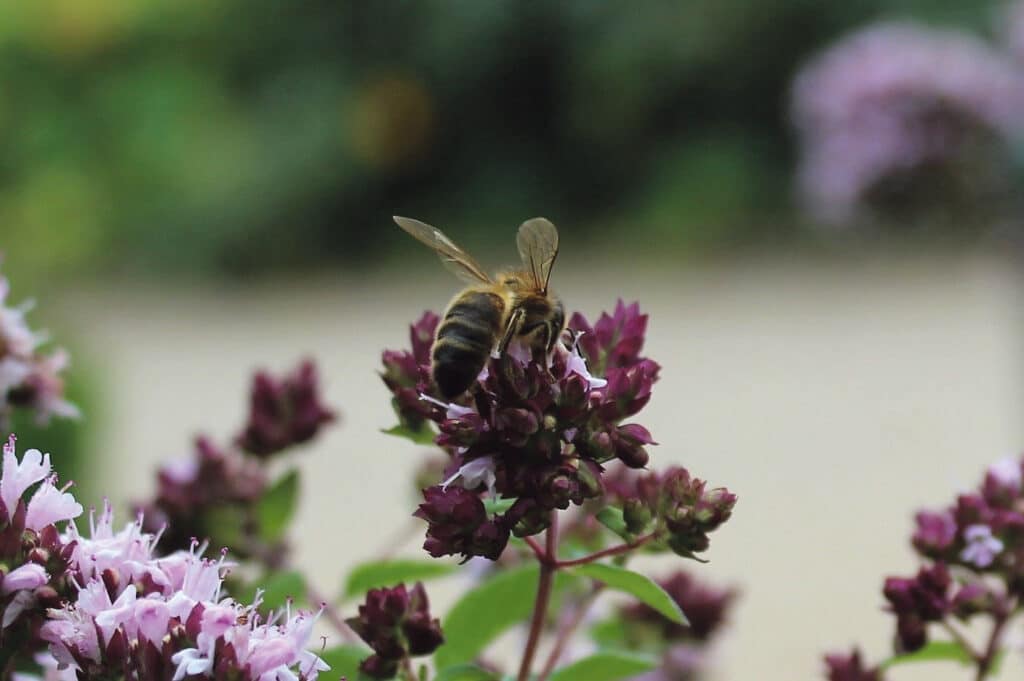
At this time of year when gardens demand so much of our attention it is interesting to consider why we put such an effort into making even the smallest patch lovely.
A garden may be defined as an area distinguished by its layout and the plants that grow there, all of which gives us pleasure and enjoyment. This association of gardens with solace, quiet and delight has endured since time immemorial. The Garden of Eden and the Garden of Hesperides are just two that evoke a sense of mystery, while the Babylonian hanging gardens suggest visions of exotic plants, fruits, and abundance in an arid, dry environment.
In the Middle Ages, monastic gardens, and the ‘luibh gort’ in Ireland, supplied the herbs necessary for healing the sick but modern research supports the view that gardens also provide physical, social, emotional, and spiritual health. According to a 1984 study by Roger Ulrich, surgical patients who had a view of nature had fewer problems, and were released sooner, than those who could only see a brick wall. This work established the necessity for evidence-based design in the layout of healthcare facilities and gave rise to a distinct professional organisation of horticulture within the discipline – the American Horticultural Therapy Association.
Gardens are defined as a piece of enclosed ground, so a garden may be seen as an outdoor room. The Zen garden is probably the one style of garden where this idea of being a separate room, away from public life and in a safe secure space, is most evident. But any garden can create this sense of being away from the hustle and bustle if a little corner is made more secluded than the rest and hidden away from the house. The growth and sheer verdant nature of a garden also pleases us and, if a garden is well-designed, it allows all our senses to be activated. We can touch, smell, hear, see, but we also become aware of temperature change as we move from sun to shade. If the ground is uneven or we have to climb steps our sense of balance is needed and the feel of a gentle breeze on our face only adds to the delight of the experience.
Why are gardens healing? It may simply be because we are taught that nature is restorative, and that cities are ‘unnatural’. There is also the evolutionary theory which states that we respond more favourably to environments that are beneficial for our survival and gardens with their rich array of plants serve that need. Physically, gardens heal by reducing pain, (Fewer analgesics are needed for patients with access to gardens), improving sleep quality, reducing stress, improving patient satisfaction and even lowering infection occurrence. An interesting study by Dr. Joanne Westphal (2003) evaluated time spent in a garden by patients with Alzheimers. She found there were no beneficial effects on behaviour, medication usage, pulse rate, blood pressure and weight with patients who spent five minutes or less in the garden. However those who spent ten minutes or more showed great improvements in all the categories, except medication usage which stayed the same. Other benefits of gardens may be seen in social interactions as well as exercise. The delights of a garden can also be a positive distraction and help to decrease mental fatigue.
Gardens need to offer different experiences to different people. A person who has no energy, has experienced great stress or trauma, will not be able to climb over rocks but will appreciate a garden that is serene and calm, with the only sound being the hum of bees, and the trickle of water. For those who are more active, a garden rich with different plant species and experiences will absorb their attention, while for others a sense of space is what will restore their spirit. The serene garden may not be attractive at all for a young family on a day out but a wide-open space with lots of areas to explore will suit.
Gardens are then a pleasurable and healthy part of our lives and, as we dig, plant and weed this spring, our sore muscles may be lessened somewhat by remembering the incalculable riches they give us.



